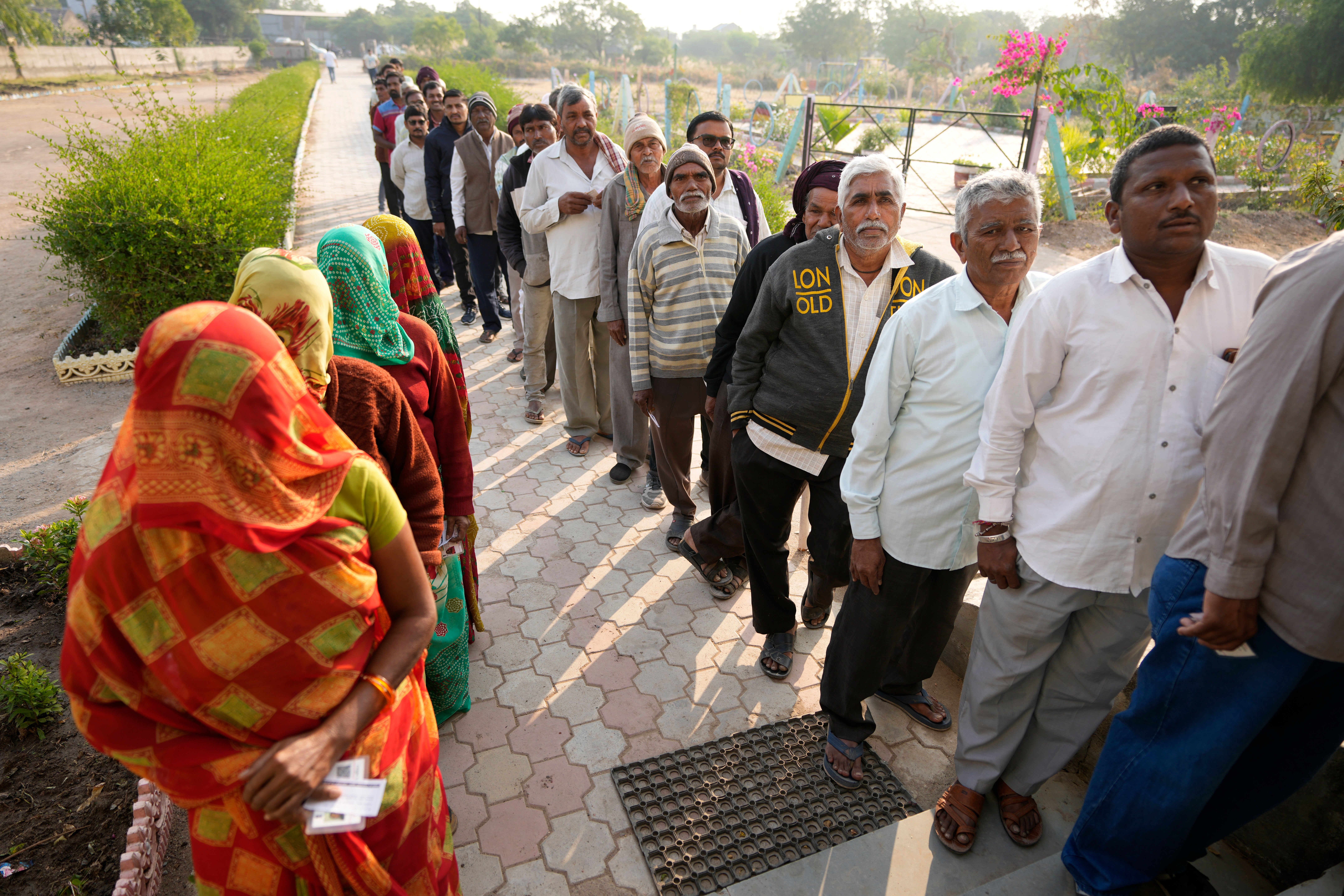India’s opposition hails ‘historic’ move to protect election body’s independence
Supreme Court’s ruling also discusses surge in money power and media ‘becoming partisan’

Your support helps us to tell the story
From reproductive rights to climate change to Big Tech, The Independent is on the ground when the story is developing. Whether it's investigating the financials of Elon Musk's pro-Trump PAC or producing our latest documentary, 'The A Word', which shines a light on the American women fighting for reproductive rights, we know how important it is to parse out the facts from the messaging.
At such a critical moment in US history, we need reporters on the ground. Your donation allows us to keep sending journalists to speak to both sides of the story.
The Independent is trusted by Americans across the entire political spectrum. And unlike many other quality news outlets, we choose not to lock Americans out of our reporting and analysis with paywalls. We believe quality journalism should be available to everyone, paid for by those who can afford it.
Your support makes all the difference.Reforms to protect the independence of India’s elections regulatory agency have been ordered by the country’s top court in a move praised by not just opposition parties but observers as well.
New appointments to the Election Commission of India (ECI) will now be made by the president on the advice of a committee that will include the prime minister, the leader of the opposition from India’s lower house of parliament or the leader of the largest opposition party and the chief justice of India.
The new system will remain in force until a law is enacted by parliament in this regard, ruled Justice KM Joseph, who headed the five-judge bench of the Supreme Court that issued the directives on Thursday.
The bench had taken up a batch of petitions that recommended reforms in the process of appointing ECI members, according to law news portal LiveLaw.
Election Commissioners who oversee state and national elections are currently still appointed by the president but on the advice of the federal government’s council of ministers that is headed by the prime minister.
The order assumes significance because of its timing.
In 2024, national elections will decide the fate of prime minister Narendra Modi’s ruling right wing Bharatiya Janata Party (BJP), that is looking to secure a third consecutive term at a time when the space for political opposition is said to have shrunk.
The order has been praised by the opposition as “historic”.
“Insulating EC from government influence & dependence will secure the integrity of the electoral process. A truly Independent EC alone can fulfill the Constitutional mandate of conducting free and fair elections,” tweeted Congress party lawmaker Anand Sharma.
Aam Aadmi Party MP Sanjay Singh also called the order “historic”.
“EC used to fix election dates by looking at PM’s rallies, announcements of schemes-Which called into question the impartiality of the Election Commission. This decision will strengthen democracy,” he said in a tweet in Hindi.
Highlighting the importance of the need to bring independence to the Election Commission, the court said the nodal agency cannot claim to be independent and then act in an unfair manner, reported law news portal Bar and Bench.
“A person in state of obligation to the government cannot have an independent frame of mind. An independent person will not be servile to those in power,” the court ruling observed.
In order to preserve the body’s independence, the court said its finances should come from the Consolidated Fund of India, where taxes and other revenues of the federal government are credited.
“What are the ways in which an executive can bring an otherwise independent body to its knees is by starving it off and cutting off the requisite financial wherewithals and resources required for its efficient and independent functioning,” Justice Joseph was quoted as saying by LiveLaw.
“It becomes imperative to shield the appointment of Election Commissioners and insulating from the executive interference,” said Justice Ajay Rastogi, another member of the bench, in a separate but concurrent judgement.
The Supreme Court also noted that there has been a huge surge in the role of money power in politics and added that “a large section of the media has abdicated its role and become partisan”.
The order comes months after the federal government appointed chief election commissioner Arun Goel in November.
The court had noted on the last day of the hearing that the appointment was carried out with “lightning speed”, with the procedure taking less than 24 hours on 18 November from start to finish, reported The Indian Express.
India’s Election Commission has faced criticism from opposition parties and observers for being under the government’s control.
Top lawyer Prashant Bhushan, one of the petitioners in the case, said the order was “historic”.
“...the SC made many important observations about our present state of democracy. The observation below about the partisan media was one of them!”
“At last SC has clinched it,” tweeted former chief election commissioner SY Quraishi. “The demand has been pending for two decades. Good for the perception of neutrality of the Election Commission.”
The Shiv Sena party’s Priyanka Chaturvedi said it was a “landmark“ order.
Trinamool Congress party MP Derek O’Brien wrote that the order will transform the poll body from “Extremely Compromised EC” to an “Extremely Competent EC”.
Join our commenting forum
Join thought-provoking conversations, follow other Independent readers and see their replies
Comments